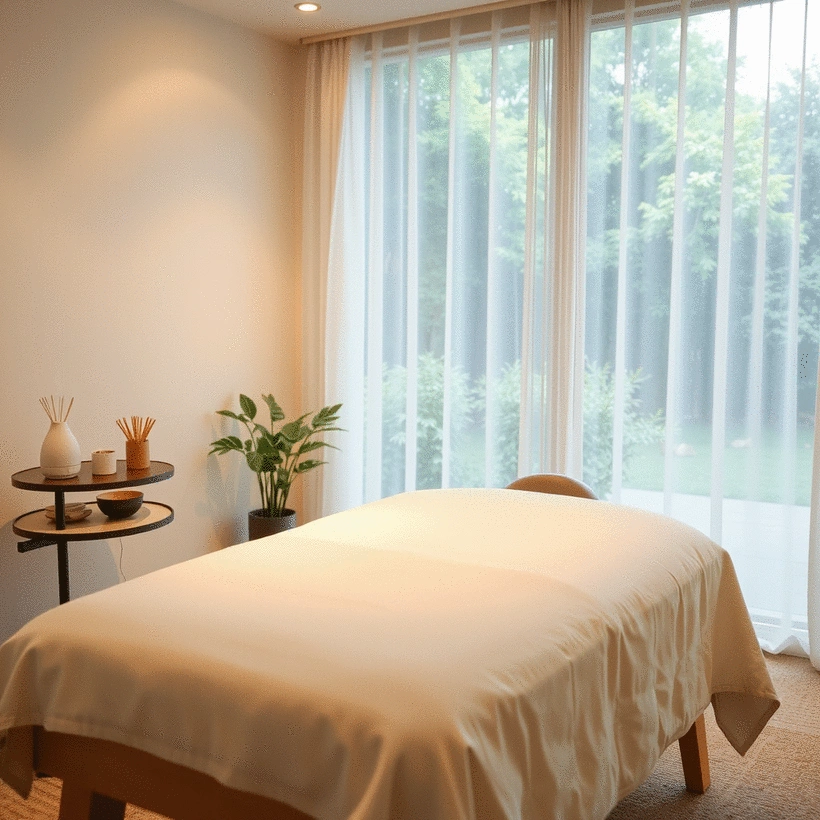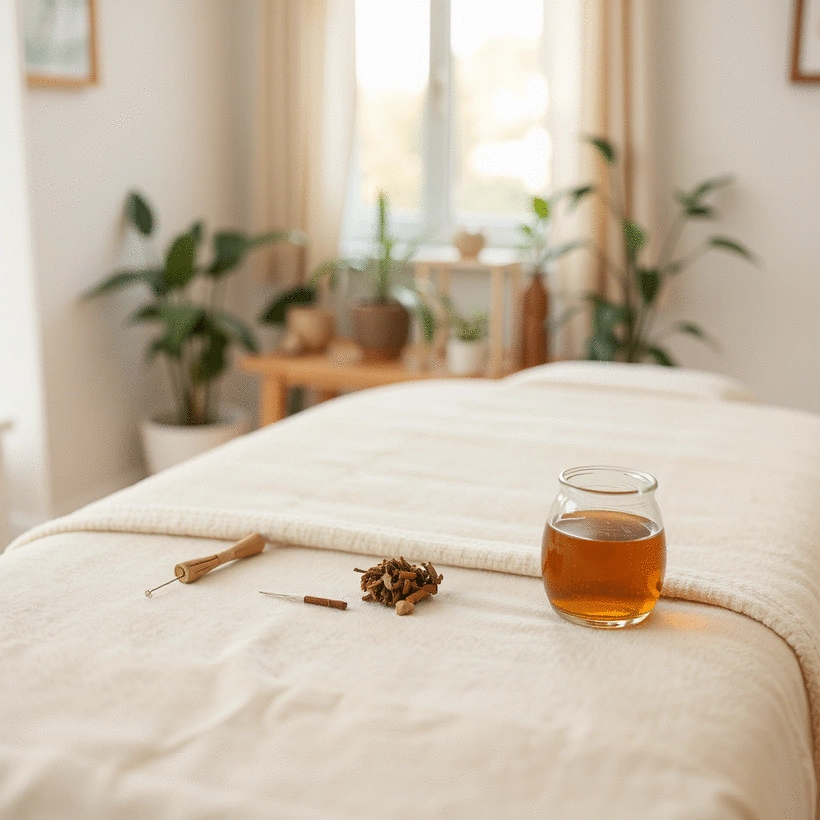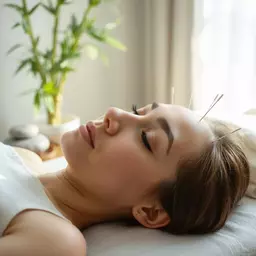Acupuncture for Better Sleep Quality

Did you know that quality sleep can significantly improve your mood, performance, and overall health? In this exploration of the ancient practice of acupuncture, we uncover how it can enhance your sleep quality and contribute to your holistic well-being.
What You Will Learn
- Acupuncture promotes natural healing by balancing the body's energy, or Qi, which is essential for improving sleep quality.
- Quality sleep is not just about duration; it's about how restorative sleep is, impacting mood, physical performance, and immune health.
- Traditional Chinese Medicine emphasizes individualized treatments, focusing on holistic health rather than just symptom relief.
- Regular acupuncture treatments have a cumulative effect, leading to enhanced sleep quality and overall well-being over time.
- Patient testimonials highlight real-world improvements in sleep quality and reductions in anxiety through acupuncture therapy.
Long-Term Effects of Acupuncture on Sleep Quality
The following key factors contribute to the long-lasting benefits of acupuncture for sleep quality:
Regular Treatments
Frequent visits can lead to cumulative benefits, enhancing the body's ability to regulate sleep.
Holistic Approach
Acupuncture addresses not only sleep issues but also related conditions such as stress and anxiety.
Patient Engagement
Encouraging patients to stay engaged with their wellness journey supports sustained improvements.
Balanced Natural Rhythms
Acupuncture can help balance the body's natural rhythms, leading to better sleep patterns over time.
Understanding the Connection Between Acupuncture and Sleep Quality
Sleep quality is essential to our overall well-being, yet many of us struggle with achieving restful slumber. Have you ever wondered about the connection between acupuncture and sleep? In this article, I'll explore how these ancient practices can significantly enhance your sleep quality, benefiting both your body and mind.
Let’s begin by diving into the fundamental aspects of acupuncture. This time-honored practice, rooted in ancient Chinese medicine, involves the insertion of fine needles into specific points on the body. The goal? To balance the body's energy, or Qi, and promote natural healing. By understanding acupuncture's role in our wellness journey, we open the door to improved sleep quality, as supported by research into its effectiveness for conditions like insomnia.
Defining Acupuncture: An Overview of the Practice
Acupuncture isn't just about needles; it's a holistic approach to health that dates back thousands of years. It focuses on the idea that our bodies are interconnected, and by stimulating certain points, we can trigger positive changes. Here are some key components of acupuncture:
- Needle Insertion: Fine, sterile needles are carefully inserted into specific points.
- Balancing Qi: The aim is to balance the body's energy flow for better health.
- Holistic Treatment: Acupuncture addresses physical, emotional, and spiritual aspects of health.
At Qi Paths, we celebrate this ancient method as a powerful tool in achieving wellness. It's remarkable how a simple technique can lead to profound changes in our bodies! If you’re looking for a trusted local practice, you can read more about finding a trusted acupuncture clinic that aligns with your wellness needs and offers professional, compassionate care. The National Cancer Institute provides further insights into the practice and its potential benefits.
Exploring Sleep Quality: What It Means and Why It Matters
So, what exactly do we mean by sleep quality? It's not just about the number of hours you spend in bed, but also about how restful and restorative that sleep is. Good sleep quality can lead to:
- Enhanced mood and mental clarity
- Improved physical performance and recovery
- Better overall health and immune function
Struggling with sleep can feel overwhelming. But understanding its importance can motivate us to seek solutions, like incorporating acupuncture into our wellness routine. Think about how much brighter your days could be with the right sleep!
Traditional Chinese Medicine and Its Influence on Acupuncture
Acupuncture is a vital part of Traditional Chinese Medicine (TCM), which emphasizes the balance between body and mind. TCM views health as a harmonious state, influenced by factors such as diet, lifestyle, and emotional well-being. In TCM, digestion is closely linked to energy levels and sleep quality, which is why approaches such as acupuncture for digestion are often integrated into treatment plans for sleep issues.
Here’s how TCM shapes acupuncture:
- Individualized Treatments: TCM recognizes that each person is unique, tailoring acupuncture to individual needs.
- Holistic Focus: It addresses not just symptoms but underlying causes of health issues.
- Preventative Care: TCM encourages proactive health management, aiming to prevent illnesses before they arise.
With roots in TCM, acupuncture provides a comprehensive approach to tackling sleep issues. At Qi Paths, we believe this perspective not only enhances sleep quality but also enriches your entire wellness journey, as highlighted by a study on acupuncture's role in improving sleep after stroke.
Pro Tip
To maximize the benefits of acupuncture for sleep, consider incorporating mindfulness practices into your routine. Techniques such as deep breathing, meditation, or gentle yoga can complement acupuncture treatments, enhancing relaxation and promoting better sleep quality. Remember, a holistic approach to wellness often yields the most profound results!
Long-Term Effects of Acupuncture on Sleep Quality
When we think about healing, it’s essential to consider not just immediate relief but also *long-term benefits*. Acupuncture has a reputation for promoting lasting improvements, especially for those of us struggling with sleep issues. As a practitioner passionate about the holistic healing methods of Chinese medicine, I’ve seen many patients transform their sleep quality through ongoing acupuncture treatments.
One of the questions that often arises is whether the benefits of acupuncture are sustainable over time. The good news is, many studies suggest that regular treatments can lead to **enhanced sleep quality** that endures long after the needles are removed. Let’s dive deeper into this vital aspect of acupuncture.
Evaluating the Sustainability of Acupuncture Benefits Over Time
Understanding the long-lasting effects of acupuncture on sleep involves looking at how it influences various aspects of our health. Research shows that with consistent sessions, acupuncture can create a cumulative effect, enhancing overall well-being and sleep quality. Here are some factors that contribute to its sustainability:
- Regular Treatments: Frequent visits can lead to cumulative benefits, enhancing the body's ability to regulate sleep.
- Holistic Approach: Acupuncture addresses not only sleep issues but also related conditions such as stress and anxiety.
- Patient Engagement: Encouraging patients to stay engaged with their wellness journey supports sustained improvements.
Moreover, acupuncture can help balance the body's *natural rhythms*, leading to better sleep patterns over time. As your body learns to respond to these treatments, you may find yourself experiencing deeper, more restorative sleep.
Patient Testimonials: Real-World Outcomes and Experiences
To truly appreciate the long-term benefits of acupuncture for sleep, let’s look at some inspiring stories. Many patients who visit Qi Paths have shared their journeys, highlighting the profound impact acupuncture has had on their sleep quality. Here are a few testimonials that stand out:
- Sarah from Frome: "After a few sessions, I noticed a significant improvement in my sleep. I feel more rested and awake during the day!"
- Mark from Trowbridge: "I was skeptical at first, but now I can’t imagine my life without acupuncture. My sleep has never been better!"
- Emily from Shepton Mallet: "Not only did acupuncture help with my insomnia, but it also reduced my overall anxiety. I sleep like a baby now!"
These stories are just a glimpse into the potential transformations that can occur. Each patient’s experience is unique, but they all illustrate the *powerful role* acupuncture can play in improving sleep quality over the long haul.
Frequently Asked Questions (FAQs)
- 1. How does acupuncture improve sleep quality?
- Acupuncture works by balancing the body's energy (Qi) and promoting natural healing. By stimulating specific points, it can help regulate the nervous system, reduce stress and anxiety, and restore the body's natural sleep rhythms, leading to more restful and restorative sleep.
- 2. Is acupuncture a long-term solution for sleep problems?
- Yes, regular acupuncture treatments can lead to cumulative and long-lasting benefits for sleep quality. It addresses not only the symptoms of sleep issues but also underlying conditions like stress and anxiety, contributing to sustained improvements in overall well-being and sleep patterns.
- 3. What is the role of Traditional Chinese Medicine (TCM) in acupuncture for sleep?
- Acupuncture is a key component of TCM, which emphasizes a holistic and individualized approach to health. TCM practitioners tailor treatments to each person's unique needs, focusing on balancing the body and mind, and addressing the root causes of sleep problems rather than just managing symptoms.
- 4. How many acupuncture sessions are typically needed to see improvements in sleep?
- The number of sessions can vary depending on individual factors, the severity of sleep issues, and how quickly one's body responds to treatment. Many patients report noticing improvements within a few sessions, while consistent, regular treatments are often recommended for more significant and sustainable long-term benefits.
- 5. Can acupuncture help with sleep problems related to stress and anxiety?
- Absolutely. Acupuncture is well-known for its ability to reduce stress and anxiety, which are common contributors to sleep disturbances. By calming the nervous system and promoting relaxation, acupuncture can indirectly but powerfully improve sleep quality for individuals struggling with these conditions.
Recap of Key Points
Here is a quick recap of the important points discussed in the article:
- Understanding Acupuncture: This ancient practice involves inserting fine needles into specific points to balance the body's energy, promoting healing and wellness.
- Importance of Sleep Quality: Quality sleep is crucial for mental clarity, physical performance, and overall health. It's not just about the hours spent in bed, but the restorative nature of that sleep.
- Traditional Chinese Medicine (TCM): Acupuncture is a key component of TCM, which emphasizes individualized treatment, a holistic focus on health, and preventative care.
- Long-Term Benefits: Regular acupuncture sessions can lead to lasting improvements in sleep quality, addressing not just sleep issues but related conditions like stress and anxiety.
- Real-World Testimonials: Many patients have reported significant enhancements in their sleep and overall well-being after incorporating acupuncture into their wellness routines.








